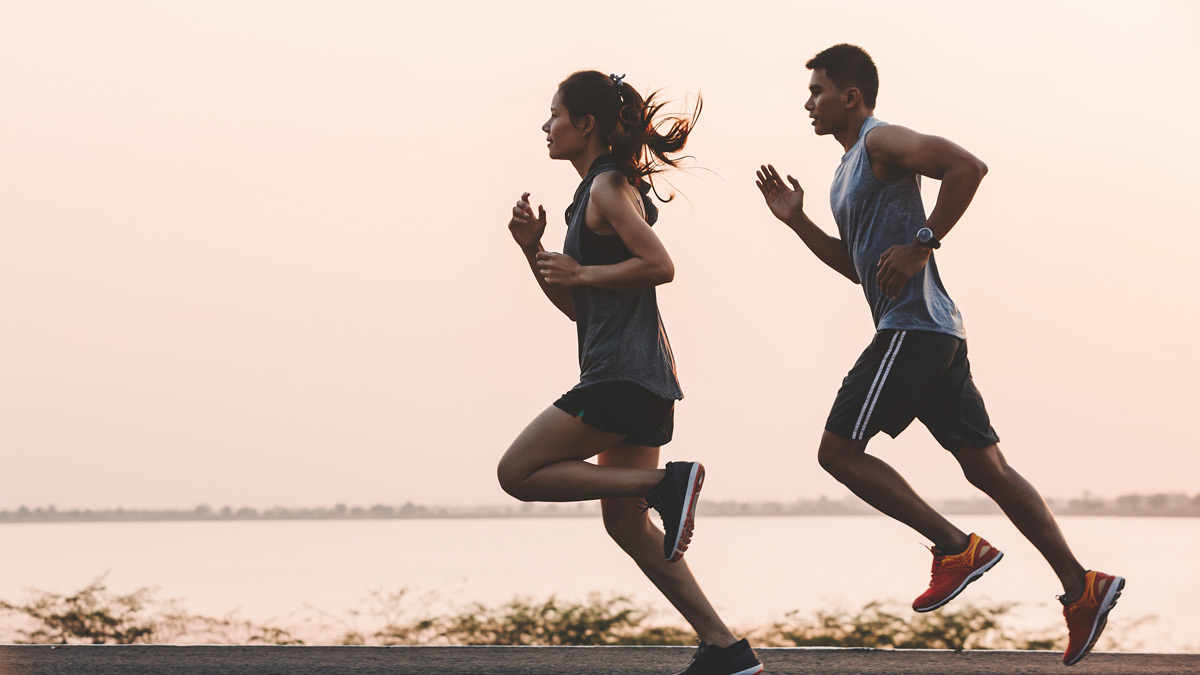The topic of sex and athletics began nearly 2,000 years ago in Greece. The theory back then was that abstaining would build frustration, aggression and ultimately result in improved performance. It would seem the tables have turned: at the Rio 2016 Olympics, a whopping half a million condoms were handed out to the approximately 12,000 competitors.
Still, the debate persists, and you’ll find professional athletes sitting on both sides of the fence. So, what does the science say?
The Role of Testosterone in Sex and Athletics
Men may have more of it, but testosterone affects both men and women. It can impact athletic performance, as low levels are linked to low energy, decreased strength, and increased body fat. It also affects sex drive.
While high-intensity training has been shown to boost testosterone levels in men, research shows that low-intensity endurance training can actually decrease testosterone levels, which affects not only performance but also the desire for sex.
How Much Endurance Training Can I Do Without Decreasing Testosterone?
It depends. If you take an 80/20 approach to your training as per uber-coach Matt Fitzgerald’s training philosophy, then you’ll be hitting those high notes, which boosts testosterone. These high-intensity intervals can help you avoid going into a deficit.
That said, we all know athletes who can’t resist adding miles to their schedule. Often, these can objectively be seen as junk miles by everyone except that one athlete. They also tend to avoid the weight room and fast efforts. These are the athletes who are more likely to suffer from low testosterone levels.

Does Sex Before Sport Affect Performance?
Although there have been clinical studies attempting to ascertain the answer, the results don’t point strongly one way or the other. A 2019 study published in the Journal of Sexual Medicine concluded that “sex had no statistically significant effect on athletic performance,” and others, including a more recent 2022 research-based study, produced the same results. In other words, we can assume it doesn’t harm performance, but you’re most likely not going to benefit either.
Regardless of the science, it appears many athletes believe athletic performance does improve after sex. This could be due to the release of endorphins, feelings of satisfaction, or merely emotional connectivity with your partner.
As with most things in sports, the impact that sex has on athletic performance depends on the individual. Don’t be shy in undertaking your own (safe) research to see what impact sex has on your performance! That way, you can make an informed decision on whether it’s right for you before race day.
References
Hackney, A.C. et al. (2012, December). Testosterone responses to intensive interval versus steady-state endurance exercise. Retrieved from https://pubmed.ncbi.nlm.nih.gov/23310924/
Kuzma, C. (2016, January 22). Training and Low T: Understanding the Link. Retrieved from https://www.runnersworld.com/news/a20860169/training-and-low-t-understanding-the-link/
Zavorsky, G.S. & Brooks, R.A. (2022, September 16). The influence of sexual activity on athletic performance: a systematic review and meta-analyses. Retrieved from https://www.nature.com/articles/s41598-022-19882-2
Zavorsky, G.S. et al. (2019, January 21). Sexual Activity the Night Before Exercise Does Not Affect Various Measures of Physical Exercise Performance. Retrieved from https://pubmed.ncbi.nlm.nih.gov/30674446/








